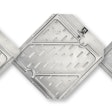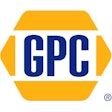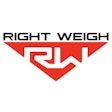Freudenberg-NOK Sealing Technologies Simrit has developed a new friction optimized seal that fits in existing standard sealing grooves.
Designed to provide more consistent performance, the combined elastomer/polytetrafluoroethylene (PTFE) system offers low break-away force, improved durability and temperature resistance for dry running piston type systems such as air brakes or pneumatics, the company says.
According to Freudenberg-NOK, an elastomeric seal needs a continuous oil film to operate at the same friction levels as a PTFE seal and the commonly used elastomeric energized PTFE seal is difficult to install. In dry running conditions, the coefficient of friction for rubber is normally around 1.5 to 2, but can be optimized to a minimum of approximately 0.4 to 0.5 with special designs and materials, whereas for PTFE it is primarily around 0.1 to 0.2 in its natural state. Samples of Freudenberg-NOK’s dual material seal were tested side-by-side versus the traditional elastomeric D-ring type seal at various pressures for dynamic and break away force. The results showed a reduction of overall friction by two times at zero pressure and three times at 10 bar, the company says.
“Our customers look to us to create application-specific improvements that they can easily implement into current design specifications without a major change to the production process,” says Joel Johnson, global vice president of technology, Freudenberg-NOK Simrit. “Our new dual-material seal provides the needed performance enhancements to the fluid power and heavy-duty truck markets without the cost of redesign.”
Freudenberg-NOK says the dual-material seal provides very low initial breakaway torque and friction, as well as high-temperature consistency and a comparable installation to that of an o-ring, including direction independence, “twist-safe” performance and gap extrusion resistance. The new design also offers increased design freedom, as a variance of geometries and diameters are available to minimize friction differences even when utilizing all production tolerances, the company says.


![Image[73]](https://img.truckpartsandservice.com/mindful/rr/workspaces/default/uploads/2026/02/image73.3mOLWA71AK.png?auto=format%2Ccompress&fit=crop&h=112&q=70&w=112)








